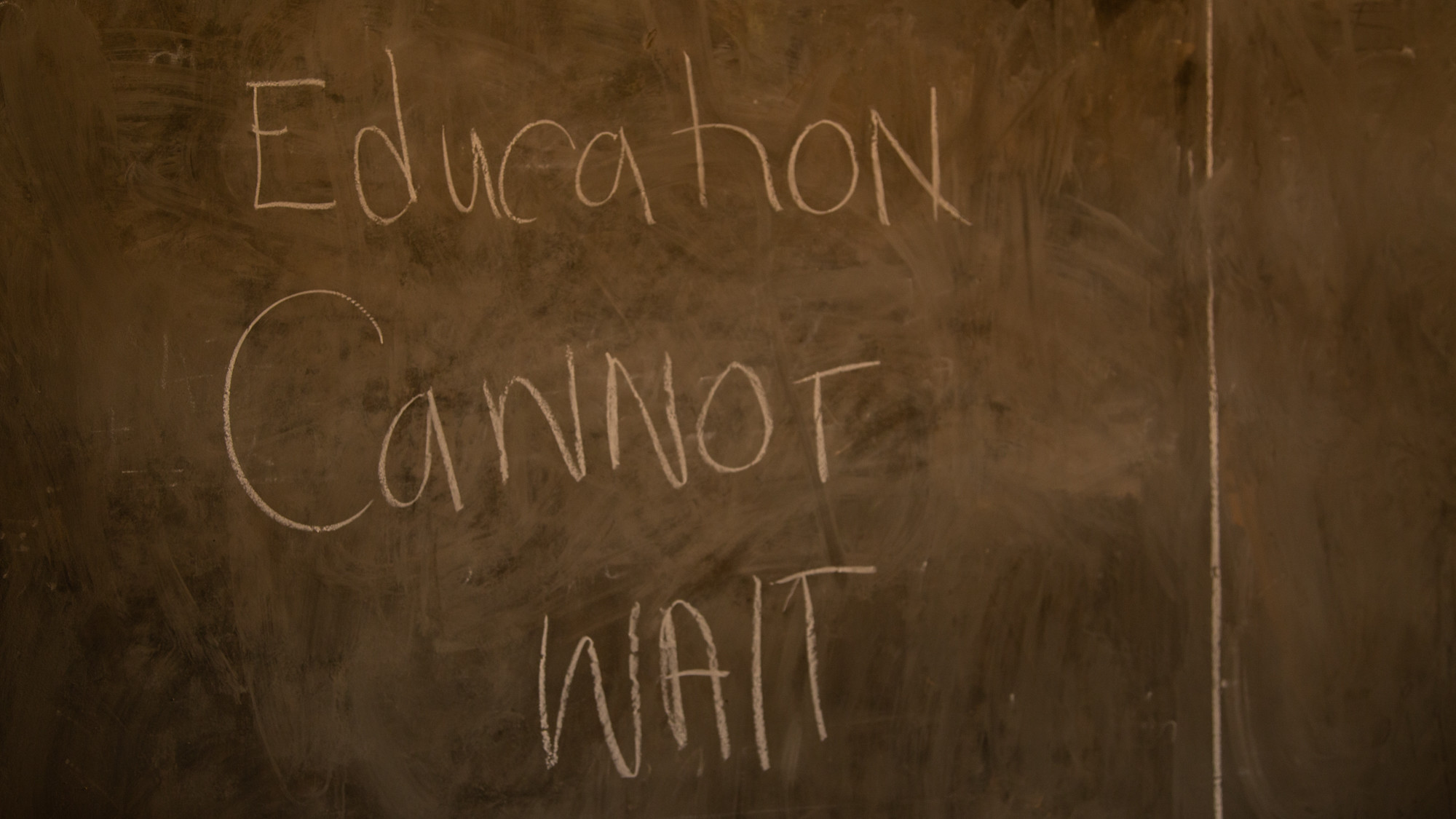
You promised: world leaders failing on pledge to get all Syrian refugees into school
Children in conflicts, Education in emergencies, Refugees and internally displaced people
With just 60 days until the new school year for refugee Syrian children, an urgent funding gap has been revealed in a startling report published by the children's charity Theirworld.
World leaders pledged to pay for hundreds of thousands of refugee Syrian children to go to school – but they have FAILED to deliver on their promise.
Now they have just 60 days to come up with more than $1 billion of funding before the 2016-17 school year starts in the region.
If they don’t, huge numbers of Syrian refugee children will be deprived of education in neighbouring countries including Turkey and Lebanon. And that will leave them at risk of child labour, early marriage, exploitation and recruitment by extremist groups.
The urgent funding gap has been revealed in a startling report published today by the children’s charity Theirworld.
Its author Kevin Watkins – executive director of the Overseas Development Institute – said: “This report raises the alarm that there is insufficient funding to get all Syrian children in school. These children have lost their homes, their friends, their schools, their relatives.
“Nowhere is the gap between pledge and delivery more damaging than in education. The international community has repeatedly restated a commitment to ensure there will be ‘No Lost Generation’ in Syria.”
The funding pledges were made in February at the Supporting Syria and the Region conference in London. The co-hosts – the United Kingdom, Norway, Kuwait, Germany and the United Nations – committed “to ensure that these financial pledges are honoured promptly”.
Watkins said today: “Keeping alive the hope, opportunity and prospects of a better future that comes with education is central to that commitment. It is frankly indefensible to convene a summit that promises some of the world’s most vulnerable children an education – and then break the promise.”
Sarah Brown, President of Theirworld – the charity behind A World at School – said: “The lack of access to education is widely cited by refugee parents as one of the main reasons for risking the hazardous journey to Europe. The vast loss of potential caused by the crisis in education threatens to deprive Syria of the skills it will need to rebuild a war-torn society.
“A whole generation of children are being robbed of their only chance to escape poverty and build a more resilient livelihood. It is crucial that pledges now turn into real delivery that sees children walking through the school gates this school year.”
The report looks in detail at the promises made at the London conference to provide education for one million refugees – and what has actually been delivered.
The promises
At the conference, the international community pledged more than $12 billion, with $1.4 billion going to education. It was the largest amount pledged in a single day in response to a humanitarian crisis, They also promised that:
- There would be no “Lost Generation” of children as a result of the Syria crisis
- 2.7 million children – all refugee and vulnerable girls and boys in host communities – would be in quality education by the end of the 21016-17 school year
- The 2.1 million children out of school in Syria would get increased access to learning
The reality
- The international community has been slow to act on the promises and less than $400,000 of the $1.4 billion pledged has come in
- Almost one million Syrian refugee children are still out of school in neighbouring countries
- With the 2016-17 school year starting in September, there is a real danger of a generation of refugees missing out on education and the hope that comes with it.
The risks
- Many of the Syrian children who are in school in host communities are in danger of dropping out
- Children out of school are at risk of child labour, early marriage, exploitation and recruitment by extremist groups
- More families will risk hazardous journeys to Europe
- Syria will be deprived of the skills it needs to rebuild a war-torn society
- A whole generation of children will be robbed of the education they need to escape poverty
The solutions
Next month, the United Nations and the United States will host another bout of refugee summits. Campaigners are calling on governments to arrive with concrete plans to deliver the $1.4 billion already pledged for Syrian refugees and urgently commit $3.8 billion for the Education Cannot Wait fund for education in emergencies, including conflicts and natural disasters.
The European Union took an important step last week when it announced – as part of a wider package – that $550 million for the education of Syrian children will be disbursed.
Campaigners welcomed this first step and want to see the pledged money quickly put to work and other governments also delivering on their commitments.
Lebanon, Turkey and Jordan have solid plans in place for delivering quality education to all Syrian refugees. An innovative double-shift school system adopted by the Lebanese government and others provides 200,000 school places for Syrian refugees.
Apart from Turkey and Lebanon, there are also large numbers of Syrian children aged five to 17 out of school in other countries. They include 2.1 million in Syria itself, 31,000 in Jordan, 25,000 in Iraq and 4000 in Egypt.
Elias Bou Saab, Lebanon’s education minister, said: “’I welcome this important and powerful report from Theirworld and am grateful for the hard work that has gone into identifying the obstacles we face. It reinforces the urgent need for donors to deliver what they pledged in London if we are not to see a fall in the numbers of pupils in school.
“I also urge more donors to commit to long-term sustainable plans, ideally of four years. Only then can we make the decisions needed to keep children in school. Regional governments need more planning certainty. For our part, we will do everything we can to get every child into school. But we cannot do this alone.”
Queen Rania of Jordan said: “Host countries like Jordan, Lebanon and Turkey are providing a global public good. This is a global crisis and we are deluding ourselves if we think it can be contained. We know all too well that in our interconnected world, a crisis in one place is a crisis in all places.
“There is a cost to depriving people of the tools to make the most of their own lives – one our global community is already paying. And if we do not invest in them now, the bill of our neglect will only rise.”


Scaling up to Reach One Million Syrian Refugees (September 2015)
More news

Theirworld initiative helps to deliver $30m of computers to Ukrainian children
